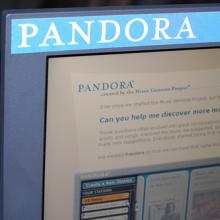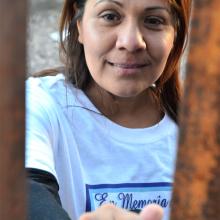immigration reform
In recent weeks, a number of controversial and divisive political questions have dominated the news. Race and voting rights, abortion in Texas, and marriage equality at the Supreme Court have opened anew the scars of old political and cultural wars.
In this conflicted political ambit, the Samaritan's bold compassion is a needed reminder today. Let’s remember to be kind to the stranger, certainly. But just as important is that the story of the Good Samaritan also invites us to imagine ourselves in a different part of this narrative.
Imagine yourself not as the Samaritan seeking to love God and neighbor. Imagine yourself as the person in need. A man on the brink of death. A woman in deepest grief. A man lost in the world. A woman with no hope. Imagine yourself at your most vulnerable, deep in despair with only one hope: perhaps someone will help me.
On the eve of the GOP immigration summit, during which Republicans will determine their position and strategy on immigration reform, the Evangelical Immigration Table held a press conference with national leaders to strongly urge House members to find the political courage to move forward on commonsense immigration reform.
“We have forgotten to engage in conversation and instead have focused on throwing stones at arguments,” David Cooper, President and Head of School at Front Range Christian School in Littleton, Colo., said.
Currently, hundreds of Evangelical Christians are expected to join in a day of prayer and action in Washington, DC on July 24, following the 92-day Pray4Reform challenge. During this challenge, people of faith across the country are taking a few minutes each day to lift up their political leaders in prayer as they consider the options moving forward. More than 25,000 prayer partners have signed up for the challenge since its start, and we welcome many more to join.
Editor's Note: In April, Associated Press representatives said they would no longer recommend the term "illegal immigrant" in the influential AP Style Guide used by many in print media. However, the term is still used by many media outlets and in common parlance. Our hope is that more will follow the AP's lead and rethink its usage.
As the Senate recently passed long awaited immigration overhaul and the bill now heads to the House, the long-standing national discourse on the issue of immigration will likely heat up again. As we participate in these discussions, my hope is that we, especially as Christians tasked with peacemaking and reconciling, will find ways to build bridges instead of erecting walls. As a first step in this bridge building, I pray that once and for all, we will stop using the term “illegal immigrant.”
Here's why:
1. The term “illegal immigrant” is a misleading and dishonest term, which violates the 9th commandment.
The term “illegal immigrant” lends one to believe that an individual is currently doing something illegal, or that their presence in our country is an ongoing, illegal act. In regards to undocumented workers, this is simply not the case. The crime that undocumented workers commit is a violation of “8 U.S.C. § 1325: Entry of Alien at improper time or place,” a federal misdemeanor. Their crime is crossing the border at the improper time and place; however, they are not currently doing anything that is illegal.
Therefore, using this term that has a less-than-honest connotation, is a violation of the commandment to not “bear false witness against our neighbors.”
By a 68-32 vote, the Senate just passed S.744, a bipartisan immigration reform bill that people of faith have held up as part of a solution to the United States’ broken immigration system. While it still has to make its way through the House of Representatives, here are the top 10 things that would happen if S. 744 became law:
1. It would create a roadmap to citizenship for aspiring Americans.
Current immigration law has no way forward for immigrants who don’t have the right documents. The Senate bill would open doors for them to become full members of society.
2. It would bring hope to lots of people.
Around 8 million of the 11.4 million aspiring Americans living in the shadows would be able to gain legal status, giving them hope and opportunity. That’s as many people as live in the entire state of New York – a huge impact.
Debating whether immigrants will have a positive or negative effect on the United States’ economy, various political groups are arguing their viewpoints and analyzing a number of fiscal pros and cons that would stem from the passage of the immigration bill. The New York Times reports:
An overhaul of immigration law would reduce the federal deficit. That’s the conclusion of a broad range of studies, from the libertarian Cato Institute to the conservative American Action Forum to the liberal Center for American Progress. Wait, it would really increase the deficit. That’s the analysis of the Heritage Foundation and the Center for Immigration Studies. But hang on a second. Immigrants have little impact on the federal deficit. That’s what the Organization for Economic Cooperation and Development thinks.
Read more here.
They have many labels. Undocumented immigrants. Illegal Immigrants. Illegal Aliens. Wetbacks. Jan Brewer, the governor of Arizona, recently suggested that most of them are “drug mules.” Some have even called them “terrorists.” But few are known by their real names or treated as people with real lives.
Most of them live at the edges of the society, under inhumane and dangerous conditions, often separated from their loved ones. For some it may be a choice. However, a vast majority of the 11 million undocumented immigrants in the U.S. are driven to such extremes by factors beyond their control — political crisis, drug-related violence, famine, or eviction from their own homes at gunpoint. Theirs is a story of displacement, of being forced to flee their homes and take risks few would under normal circumstances. They are victims, not the offenders they are often made out to be. Still, for many, it is a story of being treated by the border security as violent criminals, being stripped of their clothes and dignity and separated from their families and traumatized in detention centers. It is also a story of ostracizing and exploitation by parts of the society. The labels and stereotypes about them “otherize” them in ways that prevent their full participation in the society. Injustices like these are the reason why NETWORK’s Nuns On The Bus have been touring across the country speaking out for immigration reform.
In order to stand a chance of the Presidency in the 2016 election, the Republican Party should not obstruct the ideas of an immigration overhaul, says Republican Senator Lindsey Graham. Potential presidential candidate Marco Rubio is in favor of immigration reform as long as minor changes are made to the measure. The Guardian reports:
"The vast majority of Americans, the vast majority of conservative Republicans are prepared to support immigration reform, but only if we can ensure that we're not going to have another wave of illegal immigration in the future," said Rubio, a Florida senator and potential 2016 presidential Republican contender. "I think 95, 96% of the bill is in perfect shape and ready to go. But there are elements that need to be improved."
Read more here.
On a recent Sunday morning, Jenny Yang stood beside a giant wooden cross and made a case for immigration reform to members of an evangelical church.
“As Americans, we have a responsibility when the laws are not working for the common good to change them,” she intoned from the pulpit.
The talk was part of a broader, cross-country effort to persuade evangelicals to back the bipartisan immigration bill that’s working its way through Congress.
We had taught, run, and dreamed together. Our ministries were growing, I was once again flourishing spiritually, but Richard seemed to be stalled. His peers were finishing college, finding jobs and mates, and Richard was hustling to find odd jobs and was being left behind. As we tended the land, I took a risk. I asked him why he had said he did not want a family. He confessed that he had reached that conclusion out of despair. He truly wanted to find a wife and previously hoped to have kids, but he did not have citizenship (his family moved to the U.S. when he was 7 years old) and was not able to find legal, reliable employment. He could not afford to go to college without access to financial aid. He insisted he simply would not start a family that he could not reliably provide for. He had lost hope. But he still had integrity. I was deeply saddened. I was saddened for Richard and his loss of hope. I was also saddened that our community and nation would potentially be deprived of his vision and courage.
I remember the first time I met someone without papers. They were 12 or 13, like me, and pretty unremarkable and brown. I can still feel the tension between my intense curiosity about this boy and my disappointment about him. Going from “I wonder if they have feelings like us” and “he doesn’t have a green card but does he have a mother who loves him” to “he’s kind of normal” and “this is not what I expected a real-life outlaw to look like” in a few quick minutes.
As life moved on and I made more friends, I met more people who were undocumented. I met grandmothers and little children and some college kids. My relationship with this issue kept transforming, from “I can say I have a friend who’s undocumented SO I KNOW WHAT I’M TALKING ABOUT, OK?” to “I have friends, some of whom don’t have papers, and I’d like to government to be nice to everybody.” The more undocumented immigrants I met, the less they seemed different at all.
It happened that way with abortion, too. And gay marriage. Start out with a simplistic interpretation of the Bible and a black-and-white opinion, befriend somebody at odds with that opinion, the opinion changes. Time after time. I was against women pastors —thanks to Paul and bad exegesis — until I realized that my mother had been spiritually leading people for 20 years and most of them had turned out OK.
I’m sure that if I run for president in 20 years, somebody is going to find a paper I wrote for my Biblical Interpretation class decrying the moral state of our socialized medical system, contrast that with my current view, and label me a flip-flopper. And they would be right, which would have worried me three years ago. But I’ve met some flip-floppers since then, and they’re pretty decent people. So I’m okay with that now.
To be honest, I don’t really trust people who have had the same opinions their entire lives. Which is probably why I don’t trust much Evangelical theology, these days. I think it’s natural to have your views about the world change as you experience more of the world, and I wish it were easier to be honest about that when it happened. I wish it were encouraged.
Despite the progress on immigration reform being made in the Senate, this week offered an unfortunate reminder of the uphill battle any legislation faces in the House of Representatives.
During it’s consideration of legislation funding the Department of Homeland Security, the House passed an amendment, authored by Iowa Republican Rep. Steve King, to defund the administration’s efforts of prosecutorial discretion. Specifically, it would require DHS to deport young, undocumented immigrants known as “DREAMers.” The amendment also puts at risk anyone who qualifies for prosecutorial discretion under the June 2011 John Morton Memos while in deportation proceedings.
Essentially, this amendment would categorize all undocumented immigrants aside violent criminals who must be deported if encountered by law enforcement, regardless of their circumstances or contributions.
FAIR’s recent ad campaigns have attempted to whip up fear and hatred for immigrants by claiming that they will steal jobs from working Americans. This kind of thinking has been debunked numerous times – immigrants contribute to the economy and help start small businesses.
Pandora radio has 70 million users listening 1.31 billion hours each month. That’s a lot of people who were hearing ads based on fear rather than facts.
Along with other groups, Sojourners contacted Pandora and asked them to stop playing these ads. We understand that everyone has the right to say what they want – free speech – but we’re glad that civil society and consumers can put pressure on companies to limit the amount of harmful speech we hear every day.
Pandora has ended the relationship* after reviewing FAIR’s record. Thousands of Sojourners readers signed a petition asking them not to accept hateful ads in the future, and donated to help Sojourners run ads with positive messages highlighting the contributions immigrants make to our communities and their inherent dignity as human beings created in God’s image.
With the Statue of Liberty as a backdrop, the “Nuns on the Bus” on Wednesday kicked off a national tour for immigration reform aimed at giving a faith-based push to legislation that’s now hanging in the balance in Congress.
“We have got to make this an urgent message of now,” Sister Simone Campbell, head of the social justice lobby Network, which organized the tour, told a rally on the New Jersey side of the Hudson River.
“The next six to eight weeks is going to determine what we can accomplish,” Campbell said as she pointed to nearby Ellis Island, the American gateway for generations of immigrants. “The time is now for immigration reform.”
Champions of immigration reform believe they have their best opportunity to pass a comprehensive overhaul since 2007, when an effort backed by President George W. Bush was thwarted by members of his own party. After Republicans lost the Latino vote in last fall’s elections, GOP leaders said they would be open to an immigration bill that they think could help change that political dynamic.
On May 2, the Evangelical Immigration Table launched its 92 day Pray4Reform Challenge. They sent a letter to Congress challenging decision makers to pass compassionate and fair immigration reform within 92 days. Throughout the 92 days, evangelical Christians across the country will be showing their support by engaging in thoughtful prayer to support their legislators.
As part of the challenge, the EIT is joining in the #iMarch and will be a part of an hour-long #Pray4Reform Twitter town hall. Evangelical leaders, including Sojourners' Jim Wallis (@JimWallis), will be tweeting and conversing with others in support of immigration reform from 4 p.m. to 5 p.m. eastern time.
Christians countrywide also are being asked to join by signing up to be “prayer partners.” Each week during the challenge, they will receive an email or text with guidance on what prayer the Table is lifting up that week. Prayer partners are also encouraged to join the National Day of Prayer on May 30 by holding a dedicated time of prayer event in their communities.
In March of this year, U.S. and Mexican citizens gathered together on both sides of the border fence to honor the memory of Jose Antonio Elena Rodriguez. Five months earlier, Rodriguez, of Nogales, Mexico, was shot seven times from behind by U.S. Border Patrol agents for allegedly throwing rocks over the 14-foot fence. He was only 16 years old — a young life caught in the crossfire of increased cross-border shootings.
Tucson, Ariz., residents Maryann and Barry Gosling were among those who participated in the bi-national vigil.
We return to the benefits of connecting with others, and the dangers of allowing society to drift into one in which we count it too dangerous to trust.
Jesus’ prayer affirms this: I need other people. I do, if I want the chance to experience union with God and plunge into the heart of what God is about. And I don’t need only other people who are like me; love requires me to attend to a wider group. When I’m very different from someone else and yet we manage to live into an authentic unity supported by trust, we may gain a glimpse into God’s own wideness, perhaps discovering God to be more than we predicted.
For Jesus does not limit the venues for encountering God to churches and to groups of familiar people. What keeps it from being possible in public life, as well? It must be possible to encounter God there, given the world’s need to know God (verse 25) and God’s love for the world.
NEW YORK — The “Nuns on the Bus” are revving up their engines for another national campaign, only this time the Catholic sisters are taking their mobile platform for social justice along the country’s Southern border to push Congress to pass immigration reform.
“The ‘Nuns on the Bus’ is going on the road again!” Sister Simone Campbell, head of the social justice lobby Network, told an enthusiastic gathering of faith leaders and charity activists at a Manhattan awards ceremony Wednesday (May 1).
“This time we’re going out for commonsense immigration reform,” she said to rousing applause.
In January, I received a phone message from a friend of ours. She needed to talk with me, she said. About something.
Not long after, I got an e-mail from Cordera (not her real name), our friend’s daughter:
“I am writing to you because my family and I have run into a problem. This summer President Obama passed the Deferred Action for Childhood Arrivals [of undocumented immigrants]. Over a long course of paperwork and appointments with the USCIS, I was able to receive a work authorized social security card and employment card. [But] without a student visa, I was not able to file for a loan. A few weeks after my first attempt, I found a bank that would be able to grant me a student loan with a US citizen or permanent resident as the co-signer. My father's uncle offered to help but . . . he was denied the credit.”
She wanted us to co-sign for a private loan in the amount of $35,000 to cover her first year of college. My heart sank. We couldn’t co-sign. Or we wouldn’t. I wanted to discourage her because of unfavorable and variable rates, immediate repayment, and long-term consequences of excessive indebtedness. I spoke with her university’s financial aid officer who intoned piously that the cost of the university experience was but one factor to consider: Cordera needed to hold onto her dreams, despite the crippling price tag of those dreams.
Leading U.S. Catholic bishops on Monday denounced efforts to use the Boston Marathon bombings to derail the push for immigration reform, saying it is wrong to brand all immigrants as dangerous and that a revamped system would in fact make Americans safer.
“Opponents of immigration … will seize on anything, and when you’ve got something as vivid and as recent as the tragedy in Boston it puts another arrow in their quiver,” New York Cardinal Timothy Dolan, president of the U.S. Conference of Catholic Bishops, told reporters.
“To label a whole group of people – namely, the vast population of hard-working, reliable, virtuous immigrants – to label them, to demean them because of the vicious, tragic actions of two people is just ridiculous,” he said. “Illogical. Unfair. Unjust.”
I hear it over and over again both during my conversations on the road, and as I skim the headlines each day, that we are in a battle for the common good.
I learned about the Boston bombings as my plane landed in Portland, Ore., traveling for an 18-city book tour to spark a conversation on “the common good.” As I read and watched more about the tragedy, there unfolded such a stark and brutal contrast between the explicit intent to kill, hurt, and maim others, and the actions of those who rushed toward the blast, risking their own lives to help the wounded. One act of vicious violence was aimed to destroy the common good and create a society based on fear. The others displayed the highest commitment to redeem the common good and insist that we will not become a nation based on fear, but on mutual service and support.
When real or imagined grievances combine with rage, religious fundamentalism, political extremism, mental illness, or emotional instability, we lose the common good to dangerous violence, fear, and deep distrust in the social environment. But when grievances lead to civil discourse, moral engagement, and even love and forgiveness, different outcomes are possible.















